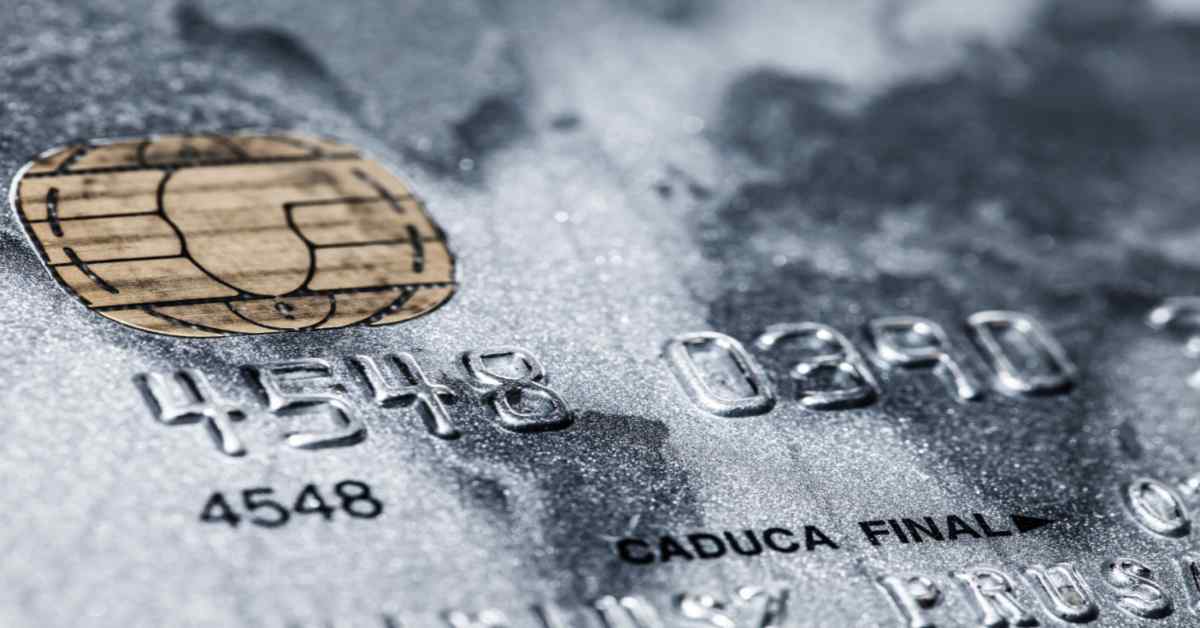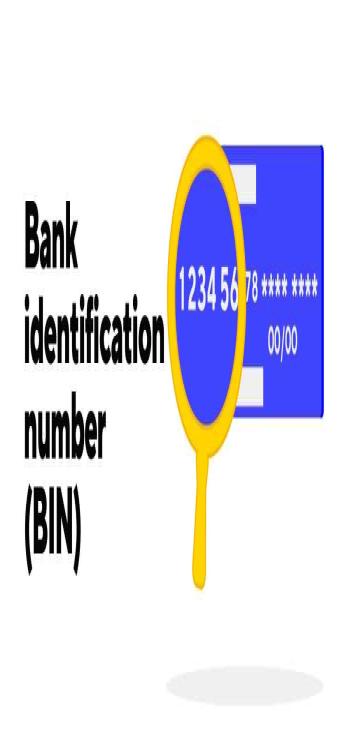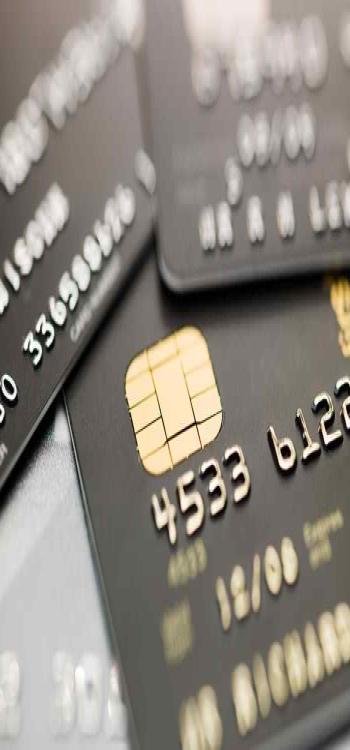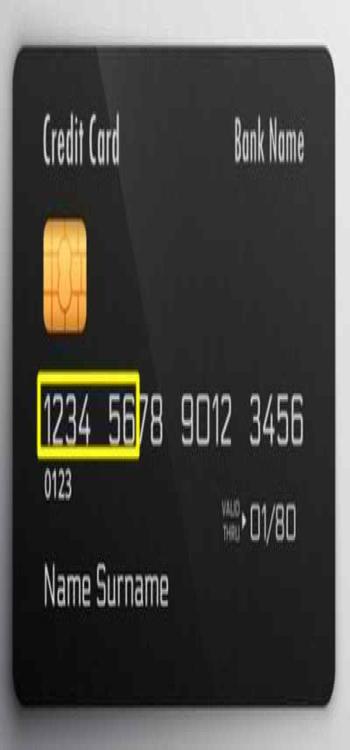If you’ve ever used a credit or debit card, you’ve probably noticed a string of numbers on the front or back. This string of numbers is called the BIN Number (Bank Identification Number), an important part of every transaction.

Things we covered for you
But what exactly is a BIN? How do these numbers work? And what do they mean for you, the consumer?
In this blog post, we’ll answer these questions and more. So whether you’re a seasoned pro for using credit cards or just getting started, read on to learn all about BINs.
What Is A Bin?

A BIN (Bank Identification Number) is the unique identifier for a specific bank or financial institution. They are typically four to six digits long and are used by banks to secure the process of credit and debit card transactions. BIN numbers can be used to identify the issuer of a card, as well as to prevent fraud and verify the authenticity of a card.
Read: Rupay Vs Visa Vs Mastercard: Learn About How RuPay Card is Different From Visa And Mastercard
The Bank Identification Number (BIN) can be used to locate the financial institution that was in charge of issuing the card. It also makes it possible for anyone who engages in online transactions to detect fraud and identity theft by comparing the cardholder’s location to that provided by the BIN.
Additionally, it is important to remember that financial institutions other than banks also offer cards; for this reason, the BIN is also known as an IIN (Issuer Identification Number).
While BINs are most commonly associated with Credit and Debit cards, they can also be used with prepaid cards, gift cards, and e-wallets. In addition, any payment that uses an account number can use a BIN number.
There are a few different ways to find out what your BIN is. If you have a credit or debit card, it should be listed on the front or back of the card. If you’re using a prepaid card, e-wallet, or gift card, you can usually find the BIN in the customer service section of the provider’s website.
How Can I Find My Bank Identification Number?
The first four to six digits of a cardholder’s number, known as the BIN (Bank Identification Number), are used to identify the card’s issuer and the main industry for which it is primarily used. The MII (Major Industry Identifier), which distinguishes banking cards from other cards, is the first number on the card.
As issuers run out of configuration options, they are switching to 8-digit BINs, which would affect the length of the remaining digits needed to identify specific accounts rather than the length of the PAN (Primary Account Number).
How Do Bank Identification Numbers Work?
BINs are unique identification numbers that are assigned to banks and financial institutions. They help to process credit and debit card transactions and can prevent fraud. BINs act as a way to identify the issuer of a card, as well as to verify the authenticity of a card.
The BIN is extremely important since, in the absence of it, credit card readers and digital payment processors are unable to verify the account from which cash transactions must be made, and as a result, the transaction cannot be completed.
Read: How to Split Your Bills with Roomies or Married Couples or Live in Couples
When a credit or debit card is used, the BIN is transmitted along with the other account information. The BIN is used by the acquirer (the bank that processes the transaction) to route the transaction to the correct issuer. The issuer then uses the BIN to identify the account and determine whether or not to approve the transaction.
The card issuer can grant the request in only a few seconds. The process is typically carried out without any manual intervention. The request will be declined, nonetheless, if the transaction value exceeds the daily withdrawal cap.
How Bank Identification Numbers is Used

There are many reasons why having a Bank Identification Number can be helpful. Knowing your BIN can make things much easier, whether you’re making an online purchase or trying to track down your bank after losing your card.
Importance of BIN Numbers
Given below are a few reasons why your BIN is important to use.
Online Purchase
The customer’s name and address. This can be helpful when a customer is making an online purchase and needs to provide their billing information. By verifying the BIN, businesses can ensure that the customer’s information is correct and minimise the risk of fraud.
Read: MAHADISCOM New Connection: Types of Connection, Application Fees and More
Case of Theft
Your BIN can be used to track down your bank if you lose your card or if it’s stolen. This is because each bank has its BIN range, so if you know the first six digits of your card, you can narrow down which bank you need to contact. When a customer’s BIN is entered into a system, it can help confirm that the customer is who they say they are and that they’re using the correct bank account.
Reward Points
Some people use their BIN to get rewards points from certain credit cards. For example, if you have a credit card that offers rewards points for every purchase, you can get more points by using your BIN to make online purchases. While this isn’t an important reason to know your BIN, it can be a nice perk if you want to earn rewards points.
Track Spending Patterns
By analysing customers’ BINs, businesses can see which products or services are being purchased most often. This information can be used to make decisions about marketing and sales strategies.
What Is BIN Scamming?

BIN number scams are when criminals use stolen or fake credit card information to make unauthorised charges. This type of fraud can be difficult to detect because the cardholder’s name and address may be valid. BIN scammers will often target businesses that have high-ticket items or offer services that can be easily resold.
Read: Noida Water Bill Payment: Fast and Reliable Online Transactions for Residents
Businesses should verify the customer’s information before completing a transaction to avoid being scammed. They can do this by asking for the cardholder’s full name, billing address, and phone number. The business should only cancel the transaction if the customer can provide all this information.
Another way the BIN scamming is done is fraudsters will get in touch with you and claim that your account information has been compromised while posing as bank officials.
They will share certain information with you to earn your trust. Once they’ve tricked you, they ask for your card number and the location of your bank. They will then provide you with the bank’s identification number and ask you for more information.
A specific bank or financial institution’s BIN number is a distinctive identification. It is usually between four and six digits long. It is employed to protect credit and debit card transactions, locate the financial institution that issued the card, spot fraud, and confirmthe legitimacy of a card. It can be used with prepaid cards, gift cards, e-wallets, and any payment method that requires an account number. It is also known as an Issuer Identification Number.
BIN assists in preventing fraud, confirming customer data, and monitoring spending habits. Fraud, known as BIN, occurs when thieves use phoney or stolen credit card information to make illicit purchases. Businesses should double-check consumer information before finalising a transaction to prevent fraud.
NoBroker can help businesses track spending patterns and identify potential fraud. In addition, businesses can flag suspicious behaviour and prevent fraudulent charges by monitoring customer activity. To know more, contact NoBroker.

FAQ’s
A1: Business owners should ask for customers’ full names, billing addresses, and phone numbers to avoid BIN scams. In this case, the business should cancel the transaction if the customer can’t provide all the necessary information.
A2: The branch code and IFSC code are not the same. The eleven-character IFSC (Indian Financial System Code) is used to identify the bank and each of its branches. The branch code is not the same as the IFSC code while being a component.
A3: IIN (Issuer Identification Number) and BIN are sometimes used interchangeably. By comparing information like the institution’s address and the cardholder’s address, this numbering system aids in identifying Identity Theft or any security violation.
A4: Bank Identifier Codes (BICs) are used for commercial communications between banking or other financial firms. There is a four characters’ code for the bank, two digit code for the country, two character code for the country, and three option digits or characters for the bank’s branch.
A5: Your bank’s BIC/ SWIFT code is often listed on the bank account statements. Log into your online banking account if you use one to read your bank statement quickly.









